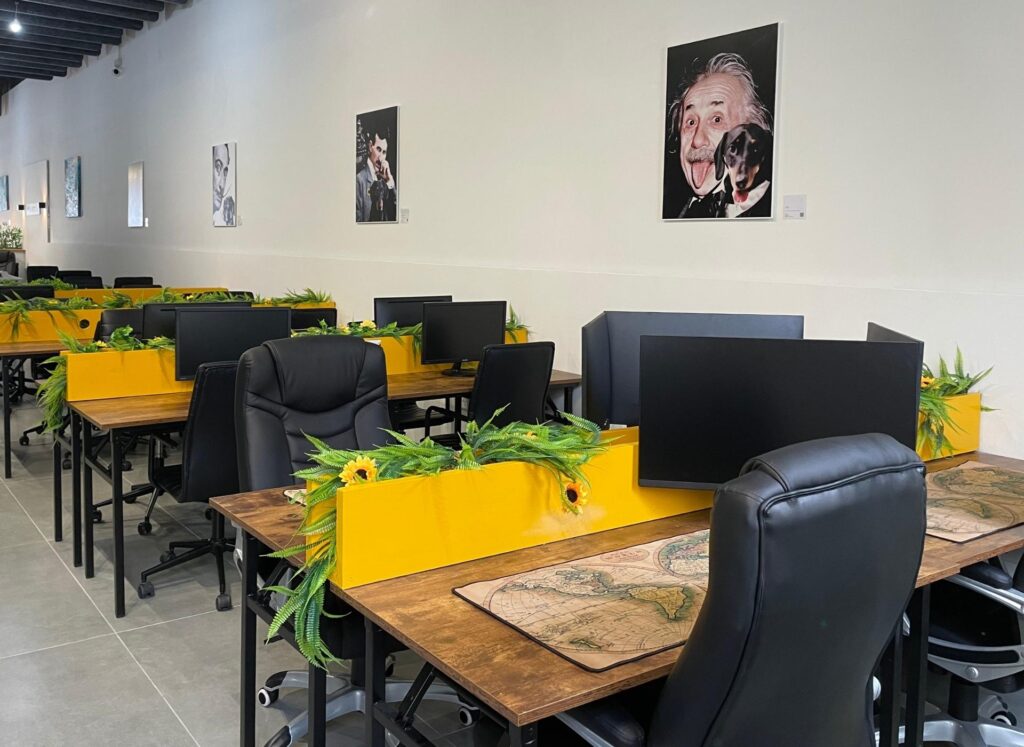In the fast-evolving landscape of the modern workplace, the concept of shared desk spaces has emerged as a transformative force. This blog explores the significant impact of these spaces on work culture, emphasizing collaboration and flexibility.
1. The Concept
Shared desk spaces, or co-working spaces, represent a departure from traditional office setups. Designed to unite professionals from diverse backgrounds, these spaces foster collaboration, creativity, and community. Offering amenities like high-speed internet and meeting rooms, they redefine the modern workspace.
2. The Birth
The inception of coworking spaces gained momentum in the early 2000s. Recognizing the need for flexible work environments, entrepreneurs established these spaces, providing a haven for freelancers and small businesses seeking alternatives to conventional office leases.
3. The Growth
The exponential growth of shared desk spaces is evident. From a handful of pioneers, the industry has expanded globally, reaching over 40,000 spaces by 2020. This growth aligns with the increasing demand for flexible work solutions.
4. The Benefits
Sharing desk spaces offer a myriad of benefits, including increased flexibility, cost savings, enhanced productivity, and a strong sense of community. Professionals can scale their workspace needs, and startups find these spaces financially appealing due to shared resources.
4 Increased Flexibility:
One of the primary appeals is the flexibility these spaces provide. Professionals can rent desk space based on daily, weekly, or monthly needs, allowing them to adapt to evolving project requirements.
Cost Savings:
Working in shared desk spaces eliminate the financial burdens associated with traditional office leases. This cost-effective solution appeals to freelancers and startups, providing fully equipped workspaces without substantial upfront investment.
Enhanced Productivity:
The collaborative environment in these workspaces fosters productivity and creativity. They provide high-quality amenities, creating an environment conducive to focused work and collaboration among diverse professionals.
Sense of Community:
Coworking spaces address the isolation often felt by remote workers. Members can connect with like-minded professionals, fostering networking and support, thereby creating a vibrant sense of community.
5. Impact on the Workforce:
It’s clear that shared desk spaces are reshaping the modern workforce by challenging traditional workday norms, attracting diverse professionals, promoting entrepreneurship, and supporting the growing trend of remote work.
Redefining the 9-to-5:
Shared Desk Spaces blur the lines of the traditional 9-to-5 workday, offering individuals flexible schedules that suit their needs.
Attracting Diverse Professionals:
These spaces attract a diverse range of professionals, fostering diversity and cross-industry collaboration.
Promoting Entrepreneurship:
Providing an environment conducive to innovation, fostering a culture of entrepreneurship, and reshaping the business landscape, these spaces are transformative.
Supporting Remote Work:
Aligned with the surge in remote work, these spaces provide a productive alternative to working from home.
6. The Future
The future presents encouraging trends, encompassing the integration of technology, customization, sustainability initiatives, expansion into smaller cities, and collaboration with corporations.
Integration of Technology:
Shared desk spaces will embrace advanced features like smart access controls, IoT-enabled environments, and AI-driven services to enhance the member experience.
Customization and Niche Spaces:
Diversification into niche markets will provide specialized resources and networking opportunities.
Sustainability and Green Initiatives:
Increasingly, sustainability practices are being integrated into the operations of shared desk spaces, advocating for eco-friendly coworking environments.
Expansion in Smaller Cities:
Beyond major urban centers, the concept is expected to witness growth in smaller cities and suburban areas.
Collaboration with Corporations:
Large corporations acknowledge the advantages of coworking and are investigating collaborations with providers, facilitating increased integration of remote and flexible work into corporate strategies.
Summarizing, working in shared desk spaces are driving a significant shift in modern work culture, offering a dynamic, collaborative, and community-focused alternative to traditional offices. As this revolutionary movement continues to mature, it remains poised to be the foundation of the future workplace, meeting the diverse needs of professionals seeking a more flexible and fulfilling career path. Whether you’re a freelancer, entrepreneur, or an employee seeking a motivating work environment, Shared desk spaces provide an enticing option for redefining work dynamics and embracing a more dynamic and cooperative career path. With its potential to shape the nature of employment for years to come, this movement shows no signs of slowing down.










